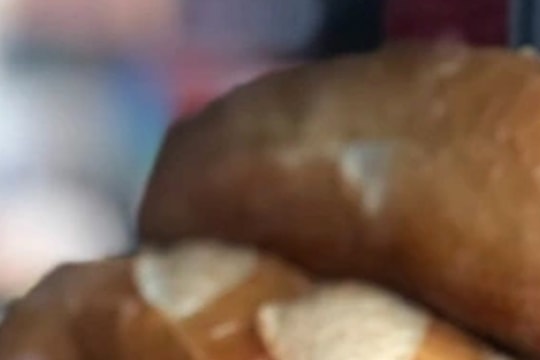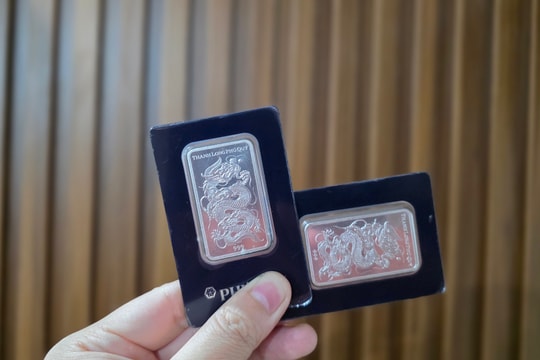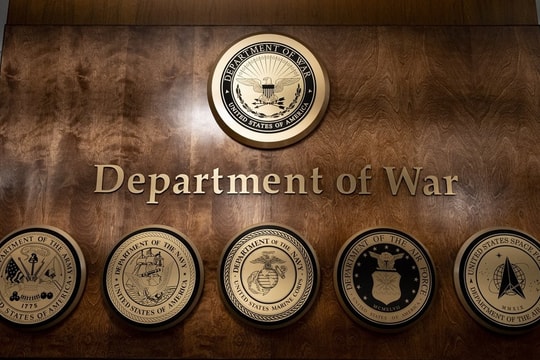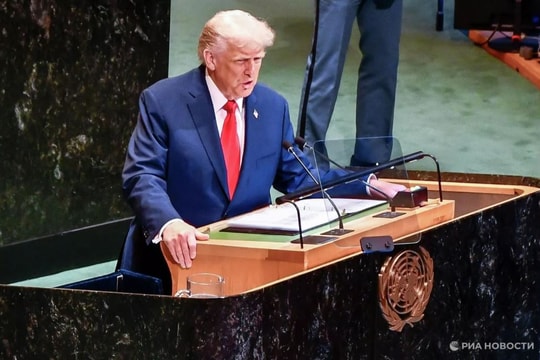Transition of Power at the White House: A Dangerous Move in the Ending Days
(Baonghean.vn) - With only days left in office, earlier this week, the administration of US President Donald Trump surprised everyone by announcing that Cuba would be put back on the US list of "state sponsors of terrorism", along with many new sanctions. This move poses many obstacles for the incoming administration, especially when President-elect Joe Biden has promised to restore the less tense relationship with Havana as under former President Barack Obama.
Foreign policy setback
With only nine days left before Republican President Donald Trump bids farewell to the White House, his number one diplomat, US Secretary of State Mike Pompeo, has announced the return of Cuba.blacklisted. The argument put forward by the outgoing US administration is that the neighboring island nation “repeatedly provides support for acts of international terrorism” by harboring US fugitives and Colombian rebel leaders.
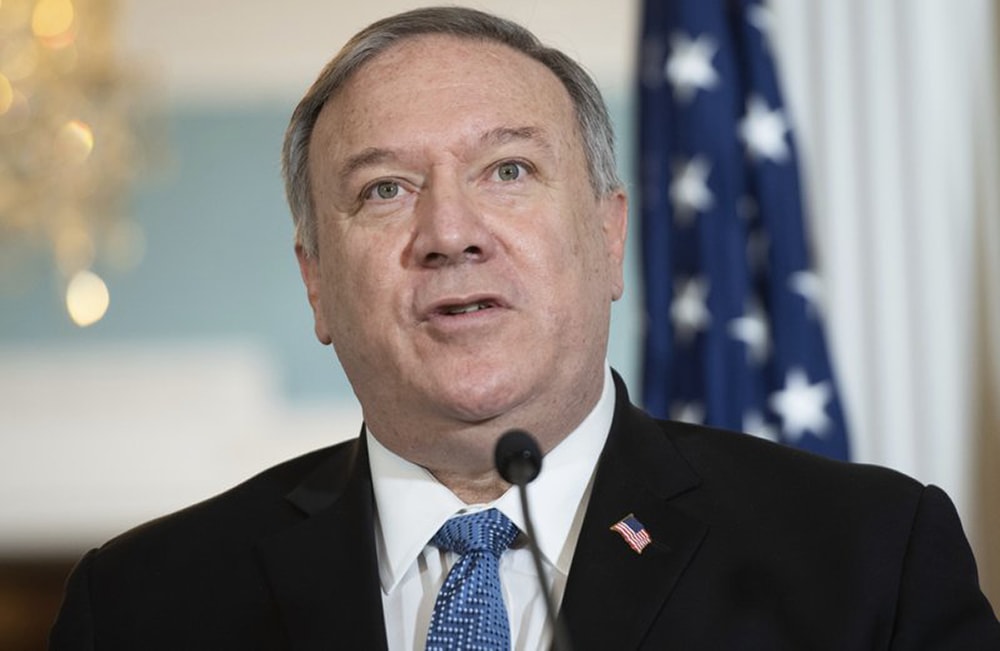 |
| US Secretary of State Mike Pompeo has just announced that the US has put Cuba back on the list of state sponsors of terrorism. Photo: AP |
In addition, Mr. Pompeo also cited the security support of Havana for Venezuelan President Nicolas Maduro, which according to the US has enabled the South American leader to maintain his grip on power and created “a permissive environment for international terrorists to thrive in Venezuelan territory.” The statement of the administration’s foreign minister, which was at “sunset,” read: “By taking this action, we will once again hold Cuba accountable and send a clear message: The Castro regime must end its support for international terrorism and reverse American justice.”
It is not difficult to see that putting Cuba back on the US list of state sponsors of terrorism, alongside other countries such as North Korea, Iran, and Syria, was one of the few “last-minute” foreign policy moves of the Trump administration before the election.Mr. Biden officially took officeon January 20. This “move” reversed the situation of easing tensions in the relationship between the former Cold War enemies, which was achieved thanks to the intervention and efforts of former President Obama. In other words, Mr. Obama’s decision to officially remove Cuba from the list of state sponsors of terrorism in 2015 was an important step towards restoring diplomatic relations at that time, but now suddenly “down the drain” “thanks” to his successor, Mr. Trump.
Surprised? Yes and no!
For many, the Trump administration’s reinstatement of Cuba on the list of state sponsors of terrorism was a surprise, but not a surprise. This is because, as usual, as the transition period approaches, important decisions are rarely made, and instead, the outgoing administration spends time ensuring a smooth transition of power. But with an unpredictable and “unusual” figure like Trump, anything is possible.
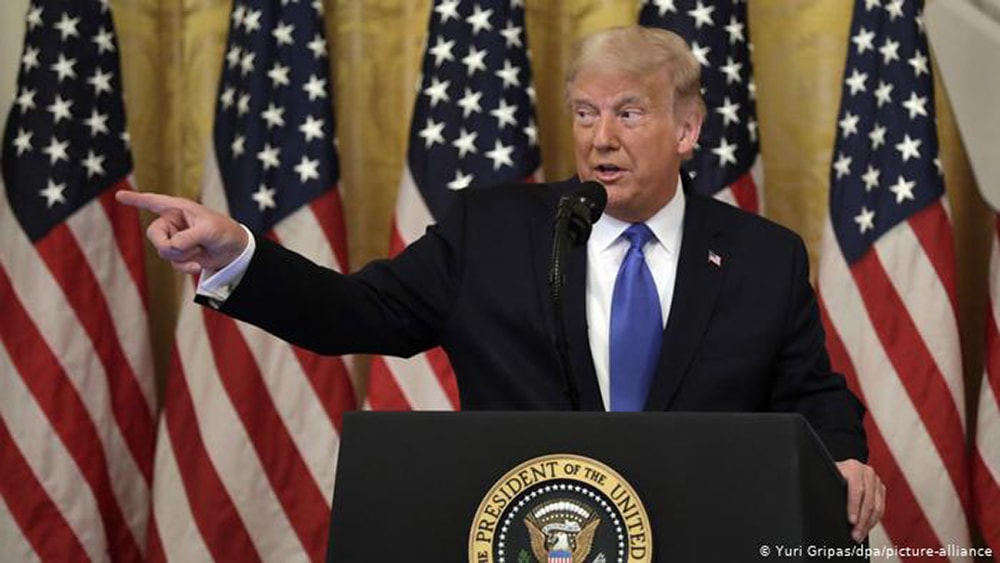 |
| The Trump administration has just taken a step that is seen as "tying the hands" of Biden's successor. Photo: dpa |
Not to mention the fact that, since becoming the owner of the Oval Office 4 years ago until today, Mr. Trump has always wanted to find ways to reverse many of his predecessor Obama's decisions related to Cuba. With a tough stance towards La Habana, the 45th president of the United States has re-imposed many rounds of sanctions that the Obama administration had eased or lifted after fully restoring diplomatic relations with Cuba in 2015. Even after a campaign aimed at attacking Mr. Obama's moves to normalize relations with Cuba, since 2017, Mr. Trump has steered the strings connecting the two sides even more tense.
So what are the implications of the US government's announcement on Monday? Most travel from the US to Cuba, as well as remittances from the US to Cuba, will be banned, while this is a fairly important source of income for the island nation. But after all, in the context of business activities that are already struggling due to the impact of theCovid-19 pandemicCombined with previous measures such as Trump’s cruise ship ban and the money transfer cap, the most significant impact of this move will probably be diplomatic. In other words, putting Cuba back on the list of state sponsors of terrorism is likely to be more symbolic than practical from Havana’s perspective.
Wave of criticism
There is a view that Mr. Trump's "move" is quite dangerous, in that it will leave "aftershocks" for his successor to shoulder, slowing down any warming in relations between Havana and the Biden administration - a character who, during the election campaign, affirmed that he would quickly reverse Trump's policies toward Cuba "which are harmful to the Cuban people and do nothing to promote democracy and human rights." Indeed, removing such measures will take at least 1 year, requiring the US government to study carefully. Not to mention that there are still people who question whether Mr. Biden - who did not play an important role in the Obama administration's opening to Cuba - is willing to invest political "capital" like Mr. Obama did without asking for anything in return from the Cuban leadership?
Biden aides have said that Trump’s 11-hour string of announcements about sanctions and other moves against targets including Cuba, Venezuela and Iran appeared to be aimed at “tying the hands” of the new leader when Biden is sworn in on the 20th. “We’ve taken note of these last-minute moves,” a Biden administration official said. “The transition team is reviewing each one.”
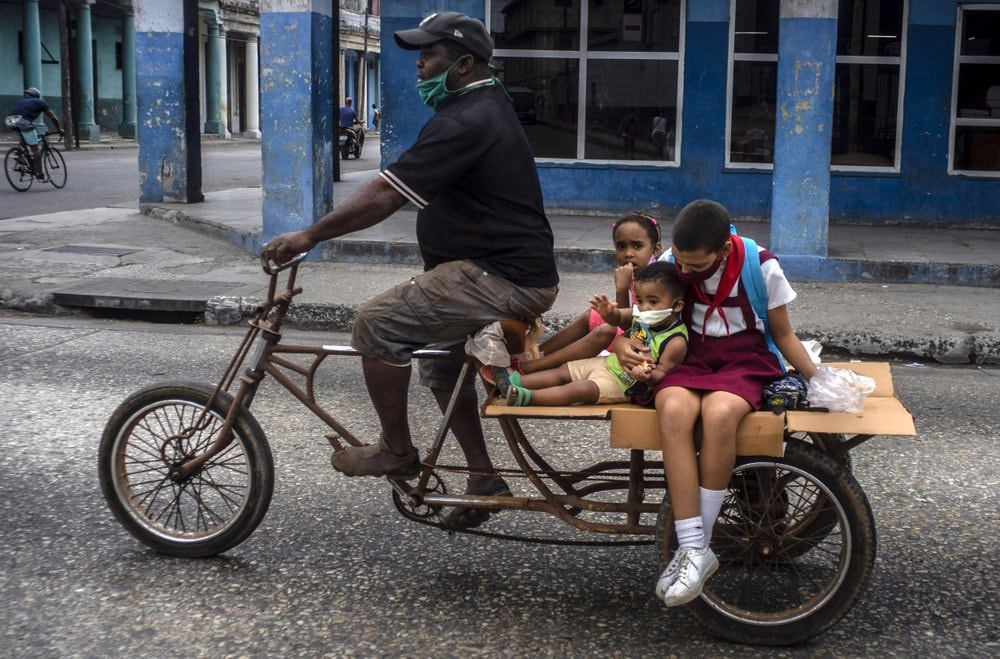 |
| The lives of Cuban people have been greatly affected by the Covid-19 pandemic. Photo: AP |
From the Cuban side, Foreign Minister Bruno Rodriguez also shared his views on Twitter after hearing the news from Washington, criticizing: “Wecondemn America's disregard for moralitydesignate Cuba as a state sponsor of terrorism. America's political opportunism is recognized by those who are genuinely concerned about the scourge of terrorism and its victims." Democratic Senator Patrick Leah, a supporter of the warming of relations with Cuba under Obama, also condemned Mr. Pompeo's move as "blatantly politicized," even asserting that "domestic terrorism in the United States poses a much greater threat to the American people." Meanwhile, a Republican member, the new chairman of the US House Foreign Affairs Committee, Gregory Meeks, also made a similar comment: "Designating Cuba as a state sponsor of terrorism less than a week before Mr. Trump's term ends and after he has initiated a domestic terrorist attack on the US capital... that is hypocritical."
In short, perhaps as some observers have commented, Mr. Trump is the type of person who wants to show his power until the last days of his term in office, and does not accept being called a “lame duck president” when his term has entered the sunset, so he has taken “unusual” steps and left behind difficult consequences for the 46th leader to find a way to resolve. And the relationship between the US and Cuba, after so many difficulties, will certainly still have to overcome many obstacles to achieve the friendship expected under Obama.



